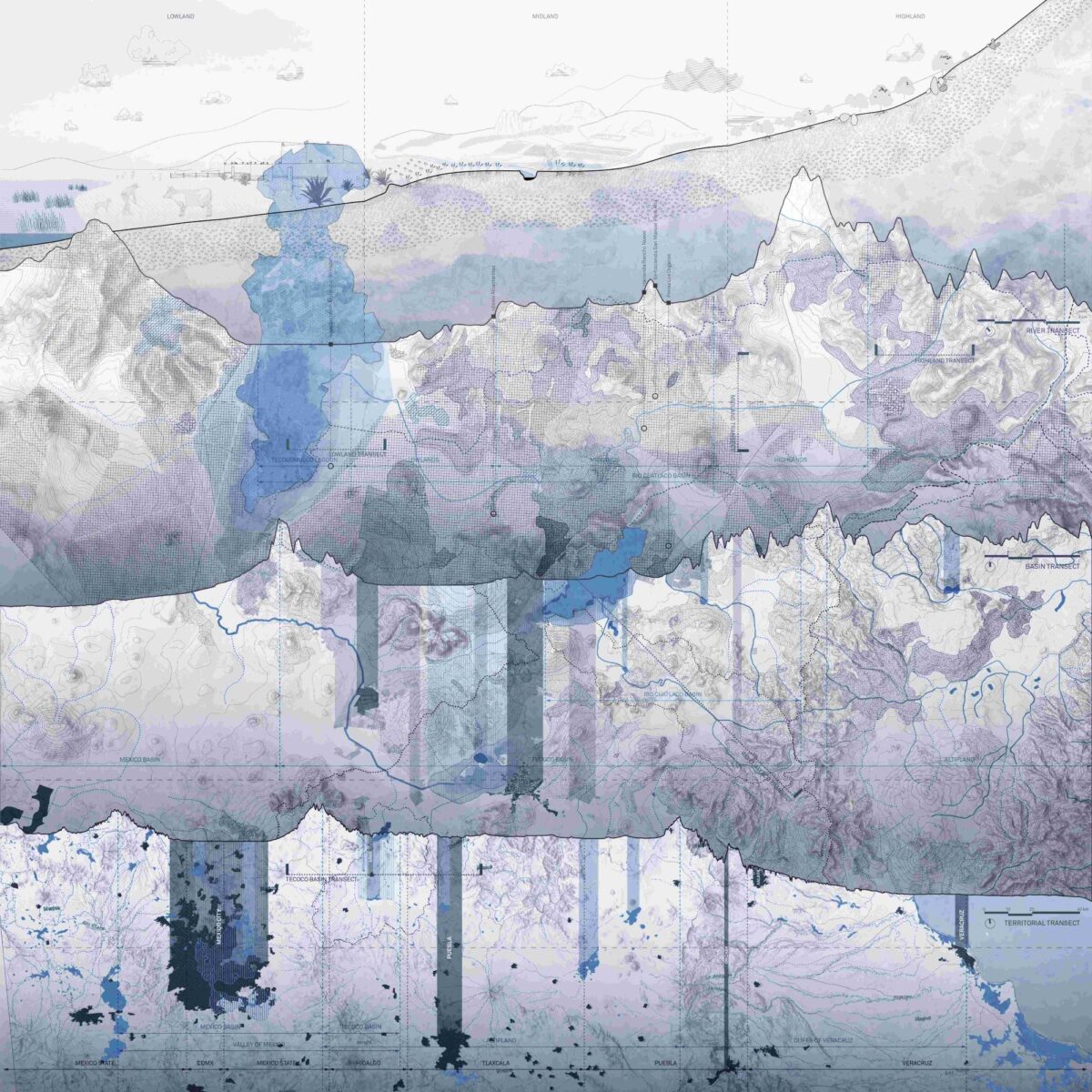Shading Sunset: Charles Waldheim on reimagining the streets of Los Angeles for a warmer future
In 1965, Ed Ruscha stood on the bed of a moving pickup truck and photographed…

River, Basin, and Territorial Transects, Rio Cuatlaco, Hidalgo, Mexico. Credit: Arty Vartanyan (MLA I AP/MLAUD '23), Angelica Oteiza (MLA I AP '23)
The Department of Landscape Architecture at Harvard is home to the oldest and most distinguished academic program in landscape architecture in the world. Its mission is to advance research and innovative design practices in the natural and built environments, as they intersect with processes of urbanization and the present realities of a changing climate.
The program leading to the Master in Landscape Architecture as an accredited professional degree is intended for individuals who have completed a bachelor’s degree with a major other than one of the design professions.
Individuals who hold an accredited professional degree in architecture, or a pre-professional undergraduate degree in landscape architecture or architecture, and a strong design portfolio, may be granted advanced standing of up to two terms, completing the MLA I in two years.
The two-year, post‐professional Master in Landscape Architecture (MLA II) degree program stream is for those who hold an undergraduate professional landscape architecture degree or its equivalent.
Since its founding in 1900, it has played a singular role in the development of landscape architecture as a profession, an academic discipline, and as a medium of design that engages urbanism, environmentalism, and culture. The mission of Landscape Architecture at Harvard is to advance research and innovative design practices in the natural and built environments, as they intersect with processes of urbanization and the urgent challenges posed by a changing climate, including widespread environmental and social inequities. Candidates in the Master in Landscape Architecture (MLA) Program work with an internationally recognized faculty, and explore the multiple ways that landscapes positively contribute to the complexities of the contemporary city, to a more equitable distribution of ecological and environmental resources, and to the creation of better futures across all regions of the world.
As the challenges of the built environment rarely correspond to traditional disciplinary boundaries, coursework in the MLA Program spans the depth and breadth of the field and enjoys strong pedagogical connections to urban planning, urban design, and architecture. MLA candidates enjoy access to and engagement with the extra-Departmental assets of the Graduate School of Design including a robust calendar of lectures, exhibitions, and events attendant to current design culture across disciplines as well as the Advanced Studies Programs, the Aga Khan Program, the Joint Center for Housing Studies, and the Loeb Fellowship. MLA candidates benefit from proximity to events and discussions in cognate disciplines across campus in the history of art and architecture, ecology, engineering, environment, and the arts. The Department’s coursework and culture are leavened by a range of institutional assets and resources unique in the discipline including the Harvard Forest, the Arnold Arboretum, the Harvard Center for the Environment, and Dumbarton Oaks.
Landscape architecture today enjoys greater cultural relevance, public visibility, and potential for professional leadership than at any time in recent history. The Department has been among the most significant centers in the world for the production and dissemination of landscape knowledge. The Department aspires to be the preeminent venue for the education of landscape architects as they are increasingly called upon as design professionals uniquely capable of representing and responding to the challenges found at the intersection of design culture, urbanization and environment.
Gary R. Hilderbrand, Peter Louis Hornbeck Professor in Practice of Landscape Architecture & Chair of the Department of Landscape Architecture
In 1965, Ed Ruscha stood on the bed of a moving pickup truck and photographed…
The Harvard University Graduate School of Design’s Department of Landscape Architecture has announced this…
Xinyi Chen. Portrait by Chidy Wayne. What is it like to be a Landscape Architecture…
Stoss Landscape Urbanism, the design studio founded by Chris Reed,…
Carol Johnson at John F. Kennedy Park in Cambridge. Courtesy of the Cultural Landscape Foundation.
Much of modern civilization has been shaped by a fundamental need for shelter, and much…
“The mountain ranges, the valleys, and the great waters of America, all trend north and…
Carol Johnson at John F. Kennedy Park in Cambridge. Courtesy of the Cultural Landscape Foundation.
The term “landscape” historically referred to pictures of the world—vistas or views—and so it is…
Although she graduated from the Harvard Graduate School of Design Master in Landscape Architecture program…